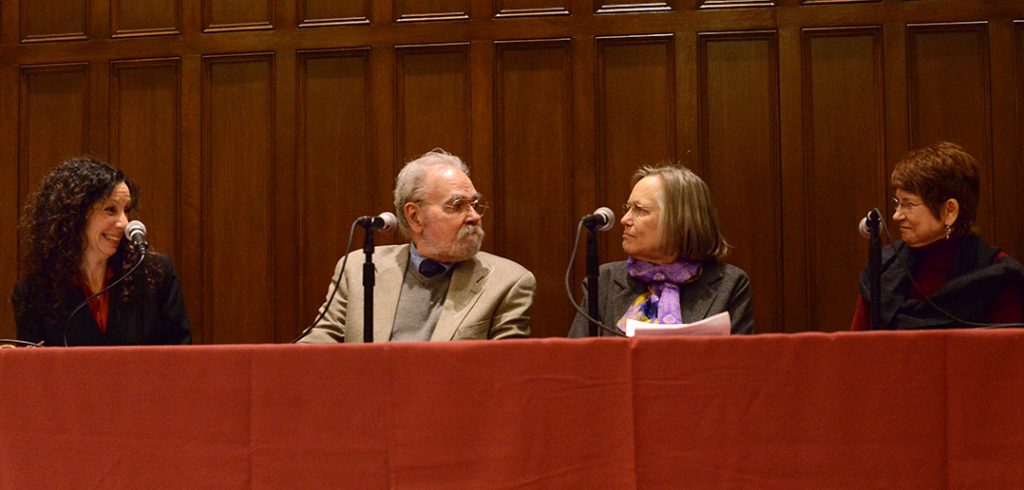On Sept. 11, 2001, Orlando and Phyllis Rodriguez lost their son Gregory in the attacks on the World Trade Center. In their grief the two never considered that the event would compel them to become bulwarks against a rising tide of vengeance.
But a new documentary titled In Our Son’s Name chronicles the couple’s uneasy journey from victimhood to valor, in which the two steadfastly refuse to buy into a national narrative of war and revenge.
Among the many instances of empathy shown in the film, which had its premiere at Fordham on Feb. 24, the friendship between the Rodriguezes and the mother of one of the suspected terrorists, was perhaps the most poignant.
The event was sponsored by the Francis and Ann Curran Center for American Catholic Studies.
The film initially focused on a friendship that developed between Phyllis and Aicha El-Wafi, the mother of Zacarias Moussaoui, the “20th hijacker”. But director Gayla Jamison said that, in the more than seven years it took to make the film, the relationship between Gregory, Phyllis, and Orlando—a professor in Fordham’s Department of Sociology and Anthropology—gradually became more central to the story.
“Orlando is an intellectual who may not have nurtured his emotional side,” Jamison said. “But that was who his son was.”
Gregory emerges in the film as a rather colorful character that had more than a few brushes with trouble before finding his way to a prestigious job at the World Trade Center. Their own son’s difficulties helped the Rodriguezes identify with Aicha El-Wafi’s agony, the film reveals. It is also what helped them identify with men incarcerated for murder at Sing Sing prison.
In a somewhat surprising segue, the couple visited with convicted felons at the prison to discuss their pain, while the prisoners talked about their remorse. Father Ron Lemmert, who came to the screening, arranged the visit.
“The men were profoundly moved by this,” said Father Lemmert, who serves at St. Teresa of Avila in Sleepy Hollow, N.Y. “They still talk about it.”
Phyllis Rodriguez said that making the film exposed old wounds.
“It was always difficult, but it was tempered by the fact that it will open different ways of thinking for other people, especially in this country’s violent culture,” she said.
She added that after 9/11 there was much talk about giving the death penalty for suspected terrorists, but she and Orlando held fast to beliefs they held before the event, no matter what the public thought.
“There was a lot of talk about the death penalty and let’s get it done fast,” she recalled. “And I said, ‘Do you think you’ll feel better? Do you think it’d bring your son, or daughter, or husband back?’”
“I have violent thoughts and vengeful thoughts,” she said. “It’s not a question of having those thoughts; it’s human to have them.”
“[But] it’s acting on them that’s the problem,” she said. “We just wish that our nation would understand that.”


